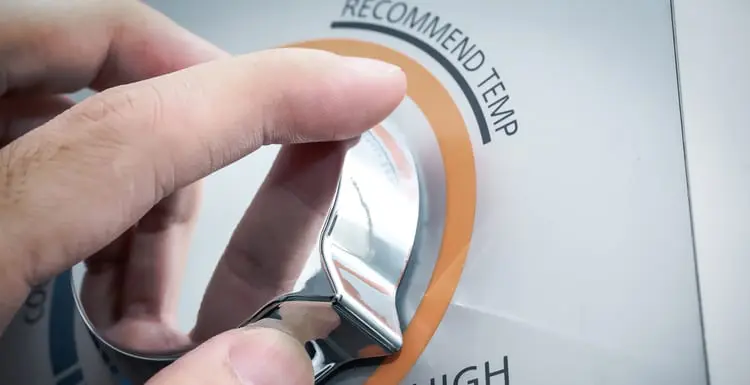Are you asking, “how long do water heaters last?”
If so, you’re in the right place. Our complete guide covers service life, signs you need a new water heater, and why you should leave replacement to a pro.
Most of the time, your home’s water heater doesn’t get noticed at all. Instead, it sits in a closet or corner, quietly and reliably warming water for your:
- Baths
- Showers
- Sinks
- Dishwashers
- And washing machines
All of these appliances help keep you comfortable and clean. This comfortable state of affairs doesn’t last forever, however.
Sooner or later, every water heater starts making noises, leaking, or simply failing to heat the water adequately or at all.
When that happens, it’s time for repair or replacement—or getting used to cold showers.
We partnered with Networx to help you find local plumbers in your area. Click to below to get a FREE quote.
How Long Do Water Heaters Last?
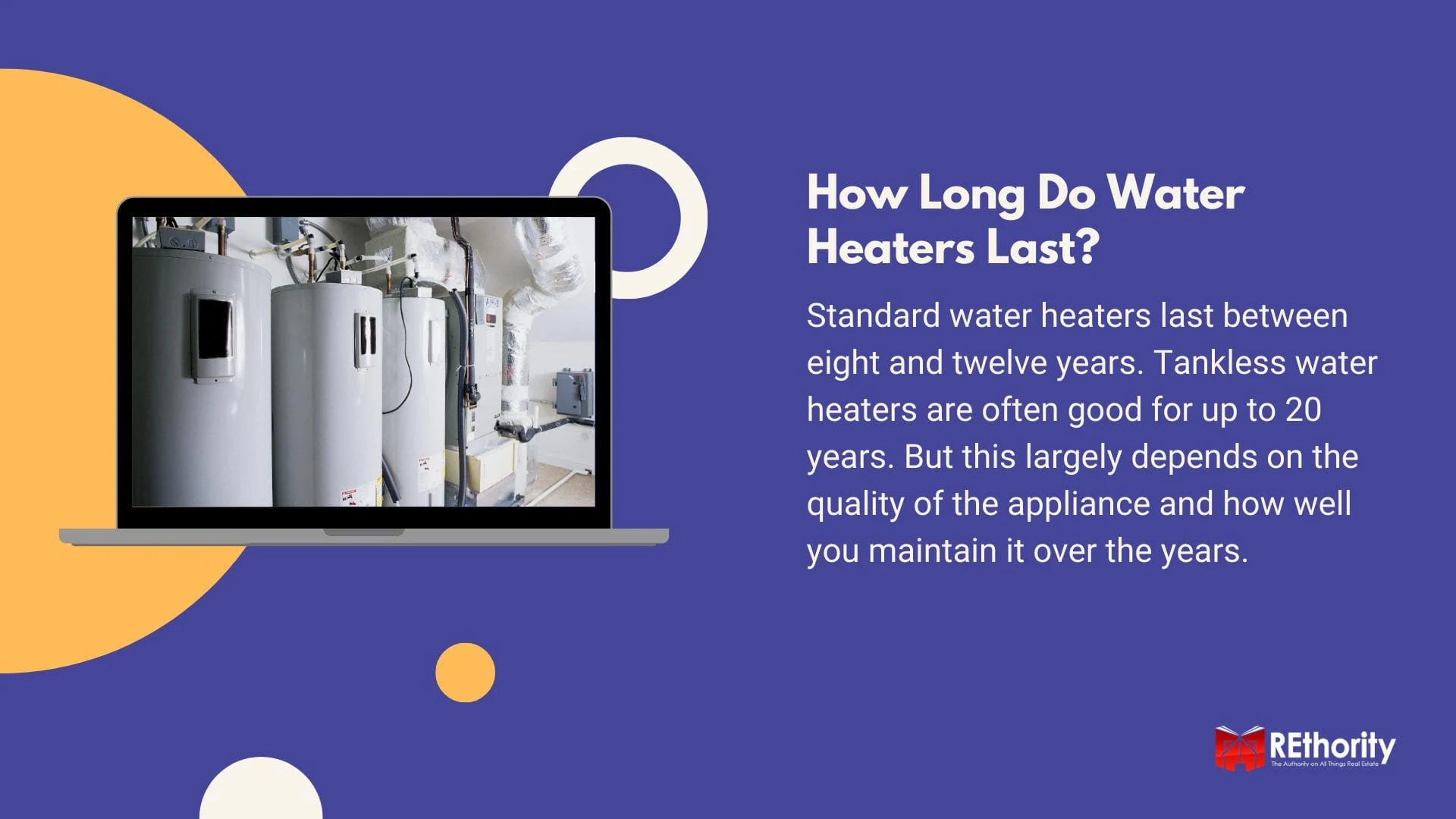
Standard water heaters last between 8 and 12 years. Tankless water heaters last for up to 20 years.
But this largely depends on the quality of the appliance and how well you maintain it over the years.
So how long should your water heater last?
The answer depends on several considerations, including:
- Design. Standard water heaters with a tank typically last eight to 12 years. Tankless water heaters are often good for up to 20 years.
- Energy source. Electric water heaters often last a few years longer than gas-fired water heaters.
- Maintenance. If you regularly drain and flush your water heater to remove sediment, it can extend the unit’s life. A well-maintained water heater may last up to 20 years.
- Water quality. Water with a high mineral content can cause the heater tank to fill with sediment, shortening the unit’s life.
- Size. If your water heater tank is too small for your needs, it can cause the heater to work too hard, shortening its life.
- Water pressure. Too much water pressure can damage the unit and lead to leaks, requiring it to be replaced sooner.
- Location. A water heater in the attic or a second-floor closet may not wear out any sooner than one in the garage. But the risk of expensive water damage from a leaky upper-floor heater is much higher.
Many things, including water heater location, are important considerations affecting the useful life of your water heater.
However, keeping your appliance in tip-top shape is the most critical thing you can do.
Signs You May Need a New Heater
The most obvious sign that your water heater is due for replacement is that it has extended its planned service life.
If your heater is over ten years old, you may want to consider replacing it.
It can be tricky to figure out how old your heater is. You may need to call the manufacturer. Odds are that a decade-old heater won’t last much longer.
Rusty Water Heaters
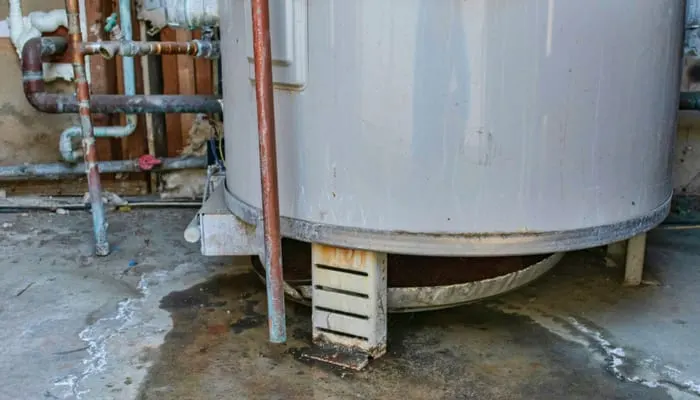
Michael Vi/Shutterstock
While you can fix some water heater problems, a leaking tank can’t usually be repaired. If your hot water is rusty or discolored, it’s likely a sign that your water heater tank is seriously corroded.
This is another problem that can’t usually be fixed without replacing the water heater. A rusting tank is likely to soon start leaking from the bottom, so don’t wait too long after seeing rust in the water to take action.
Rust around the pressure relief valve is another sign that your heater is nearing the end of its life. A noisy water heater may not require replacement.
Replace It Early
It can be much more convenient to schedule a replacement now than to have it quit over a long holiday weekend when you have a houseful of guests.
Also, recall the risk of water damage from a leaking water heater. If your water heater is leaking, replacement is likely necessary.
Not Enough Hot Water

LarsZ/Shutterstock
Finally, the most common complaint about water heaters can be a sign that the unit is ready to be replaced. That is, water that isn’t hot enough or not enough hot water.
Either of these problems can signify that a thermostat or heating element is bad or needs to be cleaned of scale. And it’s pretty evident when this is necessary.
If cleaning the heating element and thermostat doesn’t produce enough hot water for a long, steamy shower, replacement is probably the next step.
It’s Making Noise
However, it does likely need some maintenance. Draining and flushing sediment from the tank can often quiet a groaning, clattering water heater and also help extend the heater’s life.
However, if the noisy tank can’t be drained because, for instance, the valve is blocked by sediment, it’s time to consider replacement.
Ways to Avoid Replacement
Often, a non-working hot water heater can be repaired, sometimes quite easily. For instance, say your water heater suddenly stops making hot water.
Check Circuit Breakers
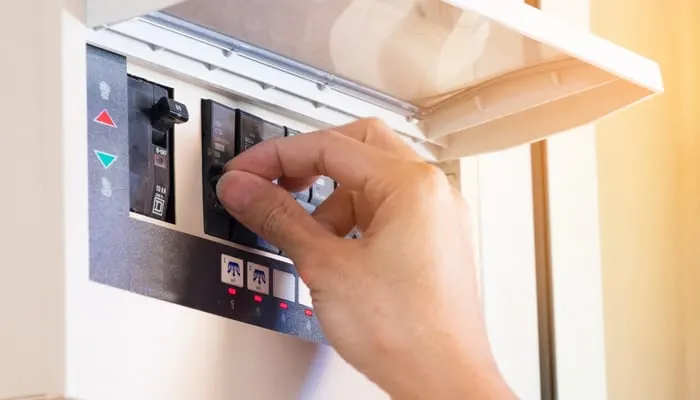
Sutiwat Jutiamornloes/Shutterstock
The solution could be as simple as replacing a blown fuse or flipping a circuit breaker. If the circuit keeps breaking, there may be a bigger problem with the wiring or the heater itself, requiring a complete replacement.
Relight the Pilot Light
When it comes to gas heaters, a common problem is a pilot light that has gone out. Relighting the pilot light can often solve this problem.
If the pilot light won’t stay lit or the main burner still won’t come on, replacing the sensor that determines whether the pilot is on is a relatively easy and inexpensive repair within the ability of many homeowners.
Replace Heating Elements
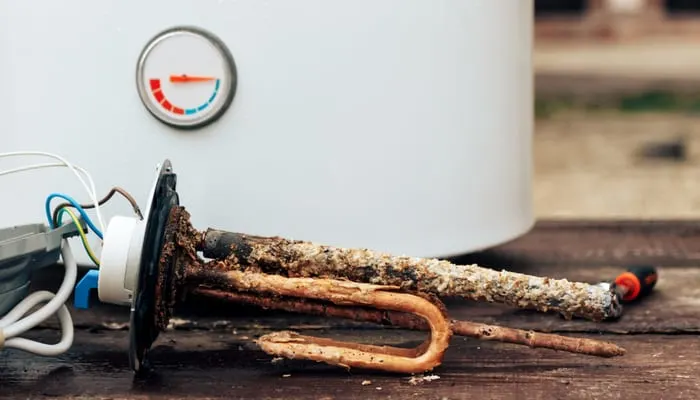
Steklo/Shutterstock
Thermostats and heating elements are two water heater components that often have to be replaced during the appliance’s normal service life.
Fortunately, replacing or cleaning a thermostat or heating element is something a moderately handy do-it-yourselfer can probably manage.
Even better, sometimes the problem can be eliminated by simply increasing the temperature setting on the thermostat.
What to Do at Replacement Time
Replacing a water heater is often not overly complicated. Homeowners with basic skills at plumbing and electricity may consider water heater replacement a suitable do-it-yourself project.
However, before committing to take it on rather than calling in a professional, it’s a good idea to consider some potentially complicating factors. Disposing of the old unit is one issue.
This is not something you can usually leave out by the curb, even if your disposal service has a special day set aside every now and then for hauling off large items.
Water Heater Disposal
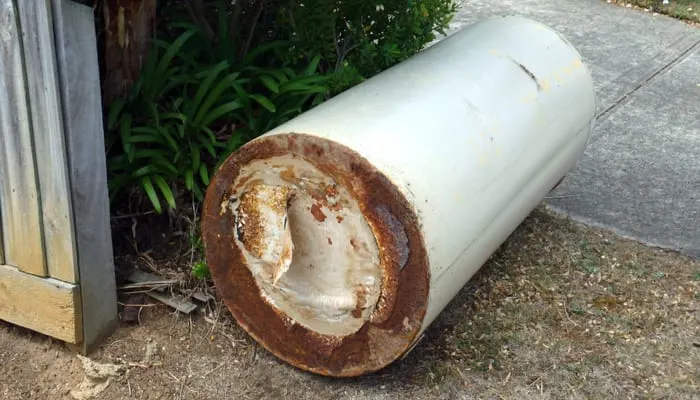
Alex Farias/Shutterstock
Typically, an old water heater has to be taken to the landfill or a recycler by whoever removes it. And a water heater can be exceptionally heavy, especially if it has become filled with sediment.
If you don’t have a good way to haul it off, it may be easier and wiser to leave it to a plumber. Also, replacing a water heater is often more complex than it appears.
Because water heaters last many years on average, your community is likely to have updated its building code since your heater was originally installed.
Check Building Codes
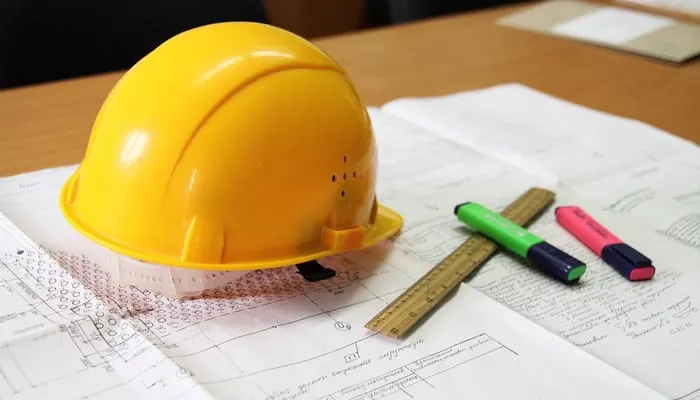
Deek/Shutterstock
It may not be sufficient to do the new installation in the same way the old one was done. The new building code may require many improvements, such as vents, water collection pans, and drains.
It’s not unheard-of for the installation costs, including updating to match the new building code, to be more than the cost of the water heater itself.
Local plumbers know the code and how to make sure the installation is done correctly. Leaving it to the pros will save you liability, time, and even money.
Even better? We partner with Networx to connect you with pre-vetted contractors who will give you free quotes. Simply click the button in the box below to get one or more estimates.
We partnered with Networx to help you find local plumbers in your area. Click to below to get a FREE quote.
Final Thoughts
Still asking, “How long does a water heater last?”
We hope not! That means we did a poor job of answering your question. However, consider this basic thought.
A water heater that is more than ten years old or showing signs of age, such as leaks, noise, rusty water, and insufficient hot water, is likely nearing the end of its useful life.
While it may be possible to keep the heater going for a few more years, it can be smarter to replace it now before any damage occurs.
After that, with proper maintenance and a little luck, the new water heater will do its essential work without attracting any notice for another good, long spell.

